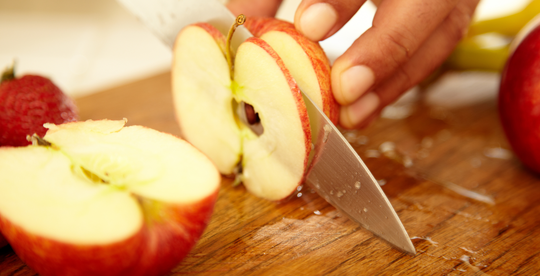Eating Well is Living Well: Fuel up with these tips

Low-carb, low-fat, high-protein, no gluten. Every day, we’re bombarded with advertisements promoting the diets of the moment. How can you figure out the right diet for you?
The reality is that there is no one-size-fits-all diet. There are so many variants of ‘diet’ and what makes you healthy. Some people eat relatively badly and are still incredibly healthy, then there are people who have a perfectly balanced diet who are unhealthy. Many people choose to take supplements in order to boost the diet they live by, and others even rely on products such as broad spectrum cbd to balance their mood and keep them feeling the best that they can. Variety and moderation are key. Over time, a low-cholesterol, heart-healthy diet is one particular diet that can serve you well.
Cholesterol is a fatty substance in your bloodstream. It has many benefits including building cells, helping your body produce hormones and vitamins and aiding in digestion. There are several different kinds of cholesterol. Too much of the wrong kind can increase your chances of a heart attack or stroke.
- High-density lipoproteins (HDL): This is “good” cholesterol. It helps to remove LDL and triglycerides from your bloodstream. Regular aerobic exercise helps your body make more HDL.
- Low-density lipoproteins (LDL): This is considered “bad” cholesterol. Too much of it can lead to a buildup of plaque in the arteries, blocking blood flow. LDL is found in certain foods.
- Triglycerides: This is the most common type of fat in your blood. Having a high level of triglycerides can increase your risk of heart disease.
To lower your LDL levels, cut down these foods:
- Butter, cream cheese and other foods high in saturated fats.
- Margarine, fried foods and other foods high in trans fats.
- Sausage, bacon, ground beef and other fatty meats.
- Whole milk products.
- Muffins, cookies and other rich baked goods.

Consider incorporating these foods into your diet to help lower your LDL levels:
- Oats. Instead of reaching for a blueberry muffin, add berries and almonds to a warm bowl of oatmeal for breakfast. Oats and fruit are rich in fiber. Current nutrition guidelines recommend getting 20 to 35 grams of fiber a day, with at least 5 to 10 grams coming from soluble fiber.
- Barley and other whole grains. These are good sources of soluble fiber. Instead of white bread and mayonnaise on a sandwich, opt for a high-fiber, whole-wheat bun and hummus spread.
- Beans. Beans are especially rich in soluble fiber.
- Eggplant and okra. These vegetables are low in calories and good sources of soluble fiber.
- Nuts. Nuts contain monounsaturated fats. These are “good” fats. Instead of potato chips and chocolate bars, try pretzels and cocoa-dusted almonds.
- Vegetable oils. Use liquid vegetable oils such as canola, sunflower or safflower when cooking. Olive oil can also bring healthy flavor to your meals.
- Apples, grapes, strawberries and citrus fruits. These fruits are rich in pectin, a type of soluble fiber that lowers LDL.
- Foods fortified with sterols and stanols. Getting 2 grams of plant sterols or stanols a day can lower LDL cholesterol. You can find them in margarine and granola bars as well as orange juice and chocolate.
- Fish. Fatty meats can increase LDL levels. Replace those meats with fish. Fish is high in omega-3 fatty acids, which helps your body make good cholesterol (HDL).
- Fiber supplements. If you are unable to get an appropriate amount of daily fiber through diet consider adding a supplement.
Too much alcohol can also raise your total cholesterol levels and your blood pressure. Limit alcohol to no more than one drink a day for women or two drinks a day for men.
Now that we’ve discussed diet, what about vitamins? There are a lot of supplements on the market such as argentyn 23 and others, which can help you improve your overall health. However, you must be wary of the ones that are not regulated by the Food and Drug Administration. So, when you make a list of prescriptions to give your doctor, make sure to include any supplements you’re taking.
Who should be taking vitamins on a regular basis?
Women who are breastfeeding, pregnant or are considering becoming pregnant. These women need more folic acid, calcium and iron for the healthy development of their babies and maintenance of their own health.
Girls and women. At certain times in life, girls and adult women may have an increased need for iron, calcium and vitamin D.
People 50 and older. These individuals may need extra vitamin B12, vitamin D and calcium.
People with special dietary concerns or restrictions. Those concerns or restrictions may impact the types of vitamins that can be digested through food. A doctor can help determine which supplements are best depending on the dietary issue.
- Patricia Dietzgen, D.O., is a family medicine physician practicing at the Kaiser Permanente Frisco medical offices
